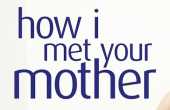Bennett Rust
Born in an evergreen deep within the confines of the pacific northwest, I enjoy writing, drawing & long walks on the beach discussing the symptomatic elements of 90's tv
Junior Contributor III
- Lurker
- ?
- Articles
2 - Featured
2 - Comments
8
- Ext. Comments
4 - Processed
0 - Revisions
0
- Topics
0 - Topics Taken
0 - Notes
0
- Topics Proc.
0 - Topics Rev.
0
- Points
349 - Rank
X - Score
147
Latest Articles
Latest Comments
| How I Met Your Modern Sitcom: Rethinking Love & Relationships | |
Thanks for the feedback! I agree that film is inherently a tool for nostalgia; the fact that we’re watching something that has already happened in the past will never allow film to NOT be nostalgic. Mostly what I’m fascinated with though, in terms of Woody Allen, is that his films, these three in particular, deal with characters who are just as much taken in by the nostalgia effect as we are as viewers. It would be like making a film about someone who absolutely loves “A Christmas Story” and its ideals on Christmas and wanting that specific way Christmas is depicted to be how Christmas should be all the time for everyone. It’s the meta aspects of Woody Allen that gives the nostalgia a slight twist, because his main characters are case studies in what it looks like to be caught up in that nostalgia, either through film or a person or a place, in their everyday lives. It’s a brilliant variation on the feeling because we can look at Alvy, Isaac or Felix and go “oh, I remember when I was absolutely obsessed with (insert person, place or thing), just like Alvy/Isaac/Felix!” except Allen’s characters are crippled by the nostalgia to a fault, which delivers the commentary on what nostalgia can do to us, living so presently in the past. (Kudos on the Christmas Story example, the nostalgia for that movie and how it’s made a cultural impact through those 24 hour marathons is in itself an awesome multi layer nostalgia pudding that works on so many levels. I mean, I long for a movie that longs for a past, in turn reminding me of my past that involved watching the movie. Those are some incredibly complicated emotions, and they’re happening simultaneously while the Parker family watches a dead duck get decapitated. It’s brilliant.) | Woody Allen's Nostalgia: Escaping in People, Places and Things |
I’m a little late to the game here, but I was rereading this article and I have to say; your attention to a very indirect yet necessary part of Animation is fantastic. It’s easy to take for granted a world that is presented to you, especially one that is considered cartoony and supposedly aimed at a younger demographic. Your examples are rich and the analysis brings a new perspective on how each of these shows work as a whole. All in all, an awesome article! During your research, did you find an animated world that may have gotten in the way of its respective show’s philosophy? You spoke of settings needing to provide just enough detail, but so much to overload a viewer in order to really explore the universe they’re presenting. Have you run into shows that go over the top in explaining a world? | World Building in Animation: The Scene Behind the Scene |
The finale has certainly taken me a while to process. I think, for the most part, on paper it stays in alignment with the show’s philosophies and mechanics. Certainly in a show built consistently on misdirections and playing up viewer expectations, only to take a wild left turn, it really shouldn’t come as any surprise that Ted and Robin would end up together in the VERY end. The mother is still used as more of a plot device than a real character, and we reach a resolve that should have happened the entire time; Ted gets Robin. It’s supposed to completely restructure our perspective on why he’s telling the story to his kids in the first place; it’s not just about them understanding who he had to become to be with the mother, it’s about him coming to terms with how much he really loves Robin. So in theory, the ending is totally on par with how the show is in its misdirecting nature, giving us a new way to look at how the show works. I think a lot of the backlash against it is due in part to the show introducing the mother as a character in the final season. We grow to like this “character”, when really she shouldn’t be a character, as awful as that sounds. We hate that Ted basically just reverts back to his old habits, we spend nine years wanting him to finally get over the Robin hill, and be happy with the mother forever. But he just goes back to being Ted. Which, really is true to form. Ted’s just as much a plot device as the mother because he never progresses, and he serves as the vehicle that we experience this story. Also a lot of things feel glazed over. The brief and vague way the mother goes, along with the kids’ instant understanding and support of him chasing after Robin feels inhuman and surreal. Which is the double edged sword of the series’ ability to jump back and forth in time so quickly; we never see the grieving stages of Ted or his kids. I honestly love how Barney’s arc is handled. He stays true to his character, but develops into something more and understands love in a whole new context. An understanding that couldn’t happen with infertile Robin. His speech to Lily and Marshall on being okay with not finding the one and just being a single womanizer was one of the few parts about the finale that I actually felt they nailed 100 percent. All in all, the show took a huge chance with the finale, and left a lot of people divided. Sitcoms like to wrap things up with a definite resolve that audiences want; we wanted Ross and Rachel to be together in the end of Friends. But I feel that this finale leaves us with something that mirrors the complexities of real life a little bit more; sometimes we don’t get everything we want, but that’s how life works. Plus people are still talking about it, which means it’s made an impact on our culture, and keeps the spirit of the show alive. | How I Met Your Modern Sitcom: Rethinking Love & Relationships |
Thank you so much for your kind words! Actually, everyone talking about the ending theories surrounding the mother plays into one of my points perfectly. The mother is more of a plot device than a real character. She’s the reason Ted is telling the story in the first place, which is why we all want to know her fate so badly. But when it comes down to it, we have 5 really well written and developed characters that we are so invested in, who have so many things happening for themselves, it begs the question, why aren’t we talking about their situations? Why aren’t we talking about Robin’s mother showing up for the first time in the series? Or Lily’s inexplicable town car ride that made her change her mind on Rome? Barney’s Ring Bear? Our focus as a fanbase is on the end result (mother), and not the journey. | How I Met Your Modern Sitcom: Rethinking Love & Relationships |
An interesting study on what makes for a good or bad adaptation, but I’d be interested to see you elaborate more on what specifically made these programs successes or failures in relation to the series they were adapted from. Television shows have this fascinating give and take with audiences that can make or break them depending on the time and place they’re existing. Another article on this site, “Hello Ladies and the Michael Scott Problem” explains that The Office US didn’t really find its popularity until Michael Scott was portrayed as a character with deep insecurities underneath his antics, rather than just playing him off as an unlikeable character that the Office UK did with David Brent. I think there’s a lot more to explore about the intricacies of each show that could benefit these blurbs (or even spark new articles!). I really enjoy the concept you’re working with here! | The Best and the Worst of America's Foreign TV Show Adaptations |
Very apt on the Disney ideologies, and I love how you’ve counterbalanced it with a more down to earth set of morals in Chaplin films. This instantly made me think of an article I read a while back that compared animated films of the last decade and the peanuts movies from the 60’s and 70’s, in reference to how they portray the concepts of failure and success. I think it’s right up your alley: http://www.theatlantic.com/entertainment/archive/2013/08/you-can-do-em-anything-em-must-every-kids-movie-reinforce-the-cult-of-self-esteem/278596/ | Why We Should Educate Our Children with Chaplin instead of Disney |
An insightful look on the political side of the academy in reference to animation and its love affair with Pixar. I’d be interested to see you explore that facet more in the broader scheme; there’s this pigeon-holed perception the academy places on animated film that reflects how the general public sees the medium. As Brad Bird has stated “Animation is NOT a genre.” and yet this is how it’s approached not only in award season, but in summer blockbusters, marketing and critical analysis. The fact that there’s a “best animated film” oscar for these films to fight over further alienates the medium from their live action counterparts (which even more appropriately, have a tendency to contain a lot of animation/VFX). All in all, a great article! | Brave: A Victim of Favouritism? |


Thanks for the response! That’s mostly what I love about the show is that each and every episode was thought about with the bigger idea and themes in mind, rather than just making the same template episodes sitcoms use to fill season gaps. I’m glad you enjoyed the article 🙂